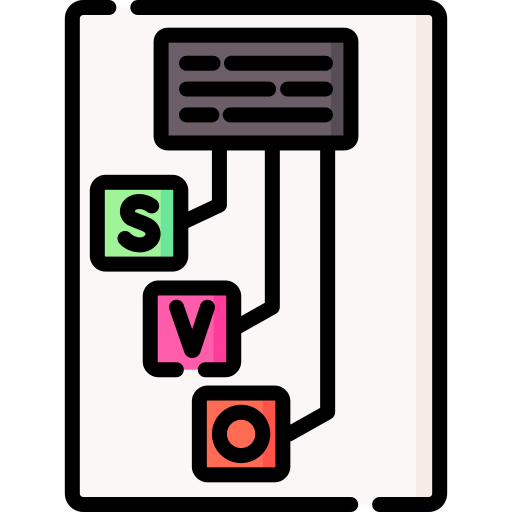 Survival Korean
Survival Korean
Completion requirements
View
기초 문법
Foundational Korean: Grammar Basics
Browse the glossary using this index
A | B | C | D | E | F | G | H | I | J | K | L | M | N | O | P | Q | R | S | T | U | V | W | X | Y | Z | ALL
D |
|---|
Dialects (방언) | ||
|---|---|---|

DefinitionDialect is the term for a sociopolitical definition of a language, more so than an actual linguistic one. Dialects are the languages spoken by the people who lack socioeconomic and political power in a society despite otherwise fitting the definition of a language. | ||
Direct Object (목적어) | ||
|---|---|---|

DefinitionA direct object is a noun (or object phrase) that receives the action of the verb. For example, I eat kimchi. Kimchi is being acted upon by the verb eat whereas I, the subject, is doing the action. | ||




